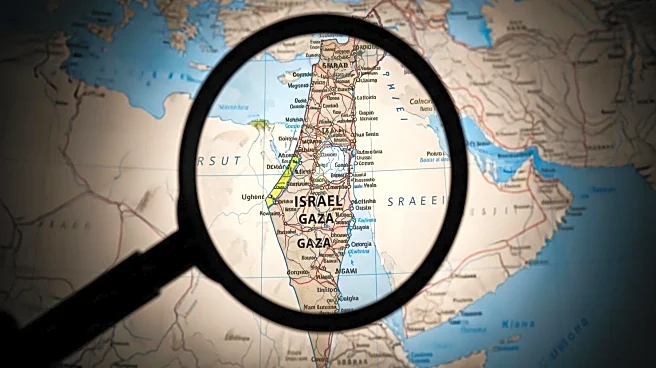What's Happening?
Javed Ali, a former senior director for counterterrorism at the National Security Council, has provided insights into President Trump's proposed peace plan aimed at resolving the ongoing conflict between Israel and Hamas in Gaza. The proposal, which has been a subject of international attention, seeks to address the long-standing hostilities in the region. Ali's analysis comes at a critical time as tensions continue to escalate, with both sides experiencing significant casualties and destruction. The peace plan is part of broader efforts by the U.S. administration to mediate and bring stability to the Middle East, a region fraught with complex geopolitical challenges.
Why It's Important?
The proposed peace deal is significant as it represents a major diplomatic effort by the U.S. to intervene in one of the most enduring conflicts in the Middle East. Successful mediation could lead to a reduction in violence and a potential roadmap for lasting peace, impacting regional stability and U.S. foreign policy. The outcome of this proposal could influence U.S. relations with key allies in the region, including Israel and other Arab nations. Additionally, it could affect domestic politics, as foreign policy achievements are often pivotal in shaping public opinion and electoral outcomes.
What's Next?
The next steps involve diplomatic negotiations and potential adjustments to the peace plan based on feedback from involved parties. Stakeholders, including international organizations and regional powers, are likely to weigh in on the proposal. The U.S. administration may face pressure to ensure that the plan addresses the core issues of the conflict, such as territorial disputes and security concerns. The response from Israel and Hamas will be crucial in determining the feasibility of the plan's implementation.








